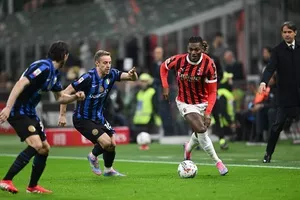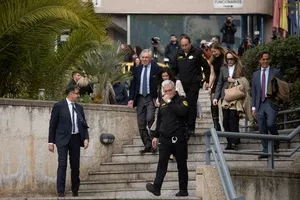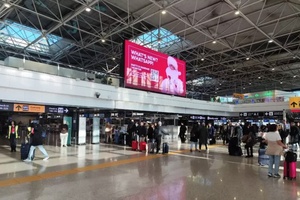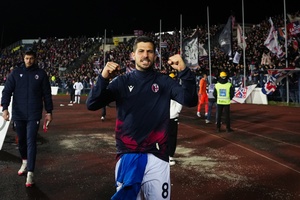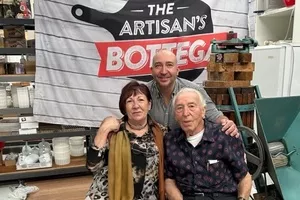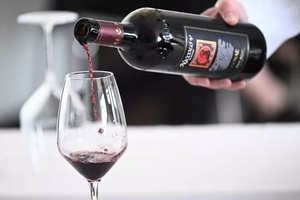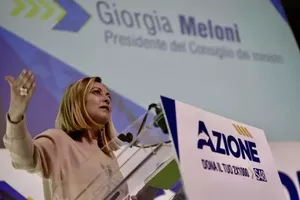Operation ‘Eureka’ “is without doubt the biggest operation ever carried out against the Calabrian mafia in Europe,” the Belgian prosecutors' spokespeople told a press conference.
“More than a thousand police were involved in this morning's raids in Germany, and three thousand in Italy.”
Over 100 Ndranghetisti were arrested, the spokespeople added, listing the countries involved as Belgium , Germany, Italy, Spain, Portugal, France, Romania and Slovenia.
They said that around 30 arrests were made in Germany where dozens of raids were carried out and a further 13 in Belgium, where large weapons caches and huge amounts of cash were seized in over 20 raids.
Interior Undersecretary Wanda Ferro said the operation had confirmed the enormous international spread of 'Ndrangheta, and its huge recycling operations from its chokehold on the European cocaine trade.
Police said the 'Ndrangheta is richer than late Colombian drug kingpin Pablo Escobar, whose assets were rated at $70 billion in today's money at his death in 1993.
They said the Calabrian Mob moves cocaine from Colombia and Ecuador into Europe through the ports of Rotterdam in Netherlands and Gioia Tauro in Calabria.
In Italy, police arrested 108 people across the country including the capital Rome and the business capital Milan in a huge operation targeting 'Ndrangheta clans.
The 'Ndrangheta is widely considered to have become Italy's most powerful organised-crime syndicate thanks to its control over much of the cocaine that arrives in Europe.
Its reach has stretched outside its southern Italian base and well beyond the country's borders.
Wednesday's operation, which had the code name Eureka, primarily hit the Nirta-Strangio and Morabito mafia clans in order to dismantle an international drugs ring.
The suspects are accused of crimes including mafia association, international drugs trafficking, arms trafficking and money laundering.
The operation featured raids in Catanzaro, Vibo Valentia, Pescara, Milan, Salerno, Catania, Savona, Bologna, Vicenza, L'Aquila, Ancona, Rome and Cagliari.
Earlier this year, Europol said it had arrested some 42 'Ndrangheta fugitives around the world in the last three years.
Antonio Strangio and Edgardo Greco are the latest fugitive 'Ndranghetisti to be caught under the INTERPOL Cooperation Against 'Ndrangheta (I-CAN) project.
The initiative brings together selected countries for a new level of multilateral police cooperation to combat the 'Ndrangheta.
Some 13 countries as well as Italy are taking part in the initiative, which reflects the global reach of the 'Ndrangheta and its vast wealth, stemming from its control of around 80% of the European cocaine trade.
The other countries taking part in I-CAN are: Argentina, Australia, Austria, Brazil, Belgium, Canada, Colombia, France, Germany, Spain, Switzerland, the United States and Uruguay.
According to Interpol, “'Ndrangheta is one of the most extensive and powerful criminal organisations in the world.
“Originating in the Italian region of Calabria, it has expanded around the world and continues to grow at a steady rate. Today, the 'Ndrangheta is considered the only Italian mafia organisation present on every world continent.”
Its global presence has helped 'Ndrangheta outstrip Cosa Nostra as Italy's most dangerous crime group.
Italy's other mafia is the Camorra from Naples.
'Ndrangheta (from a Greek word meaning 'heroism' or 'virtue') once lived in the twin shadow of Cosa Nostra in Sicily and the Camorra in Naples.
While those two syndicates, notably the Sicilians, were feeding off the transatlantic heroin trade through operations like the infamous 'French connection', the 'Ndrangheta was only just emerging from its traditional stock-in-trade of kidnappings in the Calabrian highlands.
It made its first real headlines by kidnapping the grandson of the world's richest man, John Paul Getty III, for a $17 million ransom in Rome in 1973.
It has since become a highly sophisticated global network with a chokehold on the international drugs trade and control over swathes of its home turf where police fear to tread, Italian officials say.
As well as being the richest, 'Ndrangheta is also regarded as the most impenetrable of Italy's mafias, with its close-knit family-based organisation outdoing the Sicilian mafia in its ability to defeat police efforts to turn members into State witnesses.
European law enforcement agency Europol has identified the 'Ndrangheta as one of the “most threatening” organised crime groups on the global level, due to its “enormous financial might” and “immense corruptive power”.
They have a presence in Germany, Spain, the Netherlands, France, Belgium, Switzerland, Canada, USA, Colombia and Australia, where 'Ndrangheta turf wars have gained headlines.
In Europe, the 'Ndrangheta only really came into the public eye in 2007, when six clan members were gunned down during the midsummer Ferragosto holiday in the German city of Duisburg.
The attack was part of a feud that began as a wedding spat in the Calabrian coastal town of San Luca - Strangio's hometown - in 1991.
ANSA

















